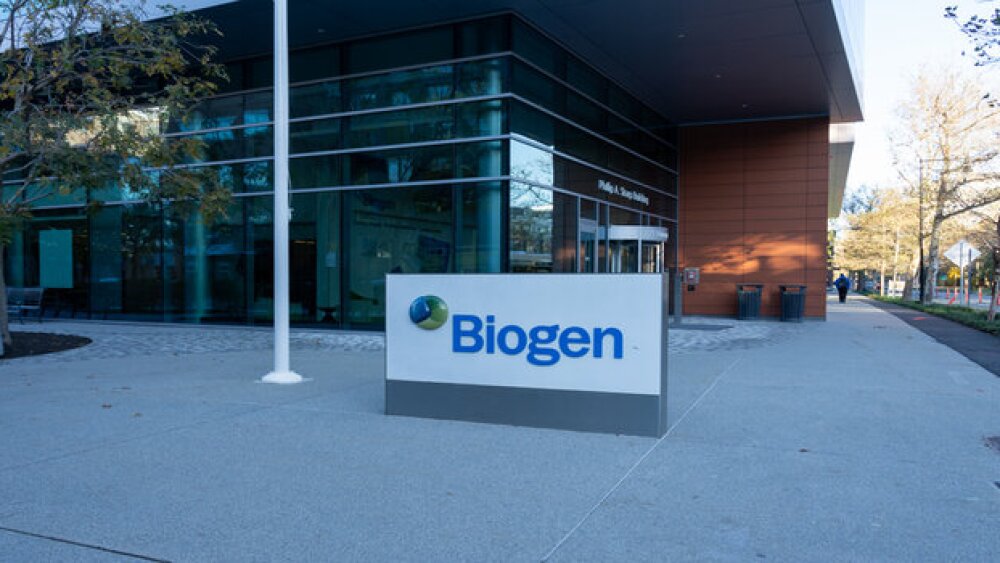Alkermes plc (Nasdaq: ALKS) today announced that LYBALVI® (olanzapine and samidorphan) is now available by prescription in the United States (U.S.) for the treatment of adults with schizophrenia, and for the treatment of adults with bipolar I disorder, as a maintenance monotherapy or for the acute treatment of manic or mixed episodes as monotherapy or an adjunct to lithium or valproate.
| DUBLIN, Oct. 18, 2021 /PRNewswire/ -- Alkermes plc (Nasdaq: ALKS) today announced that LYBALVI® (olanzapine and samidorphan) is now available by prescription in the United States (U.S.) for the treatment of adults with schizophrenia, and for the treatment of adults with bipolar I disorder, as a maintenance monotherapy or for the acute treatment of manic or mixed episodes as monotherapy or an adjunct to lithium or valproate. LYBALVI is a once-daily, oral atypical antipsychotic composed of olanzapine, an established antipsychotic agent, and samidorphan, a new chemical entity. Experience the interactive Multichannel News Release here: https://www.multivu.com/players/English/8657451-alkermes-fda-approval-availability-of-lybalvi-for-schizophrenia-and-bipolar-disorder-treatment/ “Alkermes has long been focused on the research, development and manufacture of new medicines that seek to address real-world patient needs and is committed to being a leader in the treatment of serious mental illness. Today, we’re pleased to announce the commercial availability of LYBALVI, our first oral antipsychotic medicine, for adults living with schizophrenia or bipolar I disorder,” said Todd Nichols, Chief Commercial Officer at Alkermes. “We have been building our commercial capabilities and presence in the antipsychotic market over the last five years and plan to leverage this experience as we expand our psychiatry franchise and bring LYBALVI to market. We look forward to engaging with healthcare providers and supporting patient access to LYBALVI as we drive awareness of this important new treatment option.” “Patients living with bipolar I disorder or schizophrenia commonly cycle through multiple therapeutic options in the course of their treatment journey. The availability of a new, efficacious and differentiated treatment option is a significant development for patients as they make treatment decisions with their healthcare provider,” said Michael Pollock, CEO of the Depression and Bipolar Support Alliance (DBSA). “We appreciate Alkermes’ long-standing dedication to the challenges faced by people living with serious and complex mental health conditions and to the development of medicines that seek to address unmet patient needs.” In the ENLIGHTEN clinical development program, LYBALVI demonstrated antipsychotic efficacy, safety and tolerability. Results from the ENLIGHTEN program’s pivotal ENLIGHTEN-1 study in schizophrenia, which demonstrated antipsychotic efficacy compared to placebo, and ENLIGHTEN-2 study in schizophrenia, which demonstrated LYBALVI’s effect on weight gain compared to olanzapine, as well as their respective 52-week extension studies, have been published in peer-reviewed journals.1,2,3,4 The U.S. Food and Drug Administration (FDA) approved LYBALVI under the 505(b)(2) regulatory pathway based on data from 27 clinical studies, including 18 studies evaluating LYBALVI and nine studies evaluating samidorphan alone, and the FDA’s findings of safety and effectiveness of olanzapine in the treatment of bipolar I disorder and schizophrenia.5 Resources for Patients and Healthcare Providers For U.S. healthcare providers, Alkermes’ field sales force is available to conduct remote or in-person appointments and educational sessions. In addition, Alkermes has created the LYBALVI Care Support program, which provides resources and support to help appropriate patients access treatment prescribed by their healthcare providers. LYBALVI Care Support representatives can provide general coverage information, conduct a full benefit investigation, including a written summary of benefits (usually within 24 hours for patients enrolled in the program), and provide information about the Patient Assistance Program and LYBALVI Co-pay Savings Program. To learn more, visit www.lybalvi.com or call 1-844-LYBALVI, Monday through Friday between 9 a.m. and 8 p.m. ET. In addition, healthcare professionals, patients and caregivers with questions can reach Alkermes’ Medical Information team by phone at 1-888-235-8008 (Direct: 1-571-599-2702) Monday through Friday between 9 a.m. and 7 p.m. ET or by sending an email to medinfo@alkermes.com. U.S. healthcare professionals are encouraged to visit the Alkermes Medical Information portal for assistance. Please note that this portal is for U.S. healthcare professionals only. About Schizophrenia About Bipolar I Disorder About the ENLIGHTEN Clinical Development Program ENLIGHTEN-1 evaluated the antipsychotic efficacy, safety and tolerability of LYBALVI compared to placebo over four weeks in 403 patients experiencing an acute exacerbation of schizophrenia. This study met its prespecified primary endpoint, with LYBALVI demonstrating statistically significant reductions from baseline in Positive and Negative Syndrome Scale (PANSS) scores compared to placebo (p<0.001). An olanzapine comparator arm was also included, which achieved similar improvements from baseline PANSS scores compared to placebo (p=0.004). The most common adverse events (AEs) observed in the LYBALVI treatment group (≥5% and greater than twice the rate of placebo) were weight gain, somnolence, dry mouth, and headache. ENLIGHTEN-2 evaluated the weight gain profile of LYBALVI compared to olanzapine over six months in 561 patients with stable schizophrenia. This study met its prespecified co-primary endpoints, demonstrating both a lower mean percent weight gain from baseline at six months compared to the olanzapine group (p=0.003) and a lower proportion of patients who gained 10% or more of their baseline body weight at six months compared to the olanzapine group (p=0.003). The most common AEs reported (i.e. ≥10%) in the LYBALVI treatment group were weight gain, somnolence, dry mouth, and increased appetite. The program also included supportive studies to evaluate the pharmacokinetic and metabolic profile and long-term safety of LYBALVI, and pharmacokinetic bridging studies comparing LYBALVI and ZYPREXA® (olanzapine). About LYBALVI® (olanzapine and samidorphan) INDICATIONS and IMPORTANT SAFETY INFORMATION FOR LYBALVI® (olanzapine and samidorphan) INDICATIONS LYBALVI is indicated for the treatment of:
IMPORTANT SAFETY INFORMATION
Contraindications: LYBALVI is contraindicated in patients who are using opioids or are undergoing acute opioid withdrawal. If LYBALVI is administered with lithium or valproate, refer to the lithium or valproate Prescribing Information for the contraindications for these products. Cerebrovascular Adverse Reactions in Elderly Patients with Dementia-Related Psychosis, including stroke, transient ischemia attack, and fatalities. See Boxed Warning above. Precipitation of Severe Opioid Withdrawal in Patients who are Physiologically Dependent on Opioids: LYBALVI can precipitate opioid withdrawal in patients who are dependent on opioids, which can lead to an opioid withdrawal syndrome, sometimes requiring hospitalization. LYBALVI is contraindicated in patients who are using opioids or undergoing acute opioid withdrawal. Prior to initiating LYBALVI, there should be at least a 7-day opioid-free interval from last use of short-acting opioids, and at least a 14-day opioid-free interval from the last use of long-acting opioids. Explain the risks associated with precipitated withdrawal and the importance of giving an accurate account of last opioid use to patients and caregivers. Vulnerability to Life-Threatening Opioid Overdose: Attempting to overcome opioid blockade with high or repeated doses of exogenous opioids could lead to life-threatening or fatal opioid intoxication, particularly if LYBALVI therapy is interrupted or discontinued subjecting the patient to high levels of unopposed opioid agonist as the samidorphan blockade wanes. Inform patients of the potential consequences of trying to overcome the opioid blockade and the serious risks of taking opioids concurrently with LYBALVI or while transitioning off LYBALVI. In emergency situations, if a LYBALVI-treated patient requires opioid treatment as part of anesthesia or analgesia, discontinue LYBALVI. Opioids should be administered by properly trained individual(s) and patient should be continuously monitored in a setting equipped and staffed for cardiopulmonary resuscitation. Patients with a history of chronic opioid use prior to treatment with LYBALVI may have decreased opioid tolerance if LYBALVI therapy is interrupted or discontinued. Advise patients that this decreased tolerance may increase the risk of opioid overdose if opioids are resumed at the previously tolerated dosage. Neuroleptic Malignant Syndrome, a potentially fatal reaction. Signs and symptoms include hyperpyrexia, muscle rigidity, delirium, autonomic instability, elevated creatinine phosphokinase, myoglobinuria (and/or rhabdomyolysis), and acute renal failure. Manage with immediate discontinuation, intensive symptomatic treatment, and close monitoring. Drug Reaction with Eosinophilia and Systemic Symptoms (DRESS), a potentially fatal condition reported with exposure to olanzapine, a component of LYBALVI. Symptoms include a cutaneous reaction (such as rash or exfoliative dermatitis), eosinophilia, fever, and/or lymphadenopathy with systemic complications such as hepatitis, nephritis, pneumonitis, myocarditis, and/or pericarditis. Discontinue if DRESS is suspected. Metabolic Changes, including hyperglycemia, diabetes mellitus, dyslipidemia, and weight gain. Hyperglycemia, in some cases extreme and associated with ketoacidosis or hyperosmolar coma or death, has been reported in patients treated with atypical antipsychotics. Any patient treated with LYBALVI should be monitored for symptoms of hyperglycemia including polydipsia, polyuria, polyphagia, and weakness. In some cases, hyperglycemia has resolved when the atypical antipsychotic was discontinued; however, some patients required anti-diabetic treatment despite discontinuation of the suspect drug. Measure weight and assess fasting glucose and lipids when initiating LYBALVI and monitor periodically. Tardive Dyskinesia (TD): Risk of developing TD (a syndrome of potentially irreversible, involuntary, dyskinetic movements) and the likelihood it will become irreversible increases with the duration of treatment and the cumulative dose. The syndrome can develop after a relatively brief treatment period, even at low doses, or after discontinuation. Given these considerations, LYBALVI should be prescribed in a manner that is most likely to reduce the risk of tardive dyskinesia. If signs and symptoms of TD appear, drug discontinuation should be considered. Orthostatic Hypotension and Syncope: Monitor orthostatic vital signs in patients who are vulnerable to hypotension, patients with known cardiovascular disease, and patients with cerebrovascular disease. Falls: LYBALVI may cause somnolence, postural hypotension, and motor and sensory instability, which may lead to falls, and consequently, fractures or other injuries. Assess patients for risk when using LYBALVI. Leukopenia, Neutropenia, and Agranulocytosis (including fatal cases): Perform complete blood counts in patients with a history of a clinically significant low white blood cell (WBC) count or history of leukopenia or neutropenia. Discontinue LYBALVI if clinically significant decline in WBC occurs in the absence of other causative factors. Dysphagia: Use LYBALVI with caution in patients at risk for aspiration. Seizures: Use LYBALVI with caution in patients with a history of seizures or with conditions that lower the seizure threshold. Potential for Cognitive and Motor Impairment: Because LYBALVI may cause somnolence, impair judgment, thinking, or motor skills, caution patients about operating hazardous machinery, including motor vehicles, until they are certain that LYBALVI does not affect them adversely. Body Temperature Dysregulation: Use LYBALVI with caution in patients who may experience conditions that increase core body temperature (e.g., strenuous exercise, extreme heat, dehydration, or concomitant use with anticholinergics). Anticholinergic (Antimuscarinic) Effects: Olanzapine, a component of LYBALVI, was associated with constipation, dry mouth, and tachycardia. Use LYBALVI with caution with other anticholinergic medications and in patients with urinary retention, prostatic hypertrophy, constipation, paralytic ileus or related conditions. In postmarketing experience, the risk for severe adverse reactions (including fatalities) was increased with concomitant use of anticholinergic medications. Hyperprolactinemia: LYBALVI elevates prolactin levels. Galactorrhea, amenorrhea, gynecomastia, and impotence have been reported in patients receiving prolactin-elevating compounds. Risks Associated with Combination Treatment with Lithium or Valproate: If LYBALVI is administered with lithium or valproate, refer to the lithium or valproate Prescribing Information for a description of the risks for these products. Most common adverse reactions observed in clinical trials were:
Concomitant Medication: LYBALVI is contraindicated in patients who are using opioids or undergoing acute opioid withdrawal. Concomitant use of LYBALVI is not recommended with strong CYP3A4 inducers, levodopa and dopamine agonists. Reduce dosage of LYBALVI when using with strong CYP1A2 inhibitors. Increase dosage of LYBALVI with CYP1A2 inducers. Use caution with diazepam, alcohol, other CNS acting drugs, or in patients receiving anticholinergic (antimuscarinic) medications. Monitor blood pressure and reduce dosage of antihypertensive drug in accordance with its approved product labeling. Pregnancy: May cause extrapyramidal and/or withdrawal symptoms in neonates with third trimester exposure. Advise patients to notify their healthcare provider if they become pregnant or intend to become pregnant during treatment with LYBALVI. Inform patients that there is a pregnancy exposure registry that monitors pregnancy outcomes in women exposed to LYBALVI during pregnancy. Renal Impairment: LYBALVI is not recommended for patients with end-stage renal disease (eGFR of <15 mL/minute/1.73 m2). To report SUSPECTED ADVERSE REACTIONS, contact Alkermes at 1-888-235-8008 or FDA at 1-800-FDA-1088 or www.fda.gov/medwatch. Please see accompanying full Prescribing Information, including Boxed Warning, for LYBALVI. About Alkermes plc Note Regarding Forward-Looking Statements LYBALVI ® is a registered trademarks of Alkermes Pharma Ireland Limited, used by Alkermes, Inc. under license. ZYPREXA® is a registered trademark of Eli Lilly & Company. References

SOURCE Alkermes plc | |||||||||
Company Codes: NASDAQ-NMS:ALKS | |||||||||




